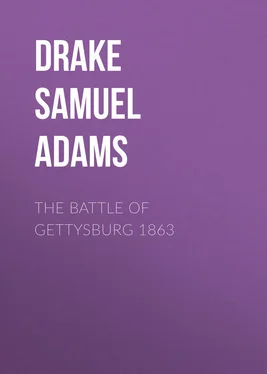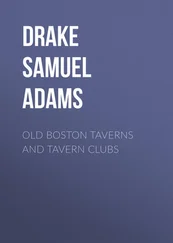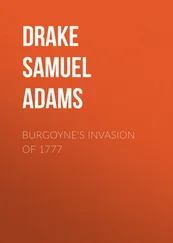Samuel Drake - The Battle of Gettysburg 1863
Здесь есть возможность читать онлайн «Samuel Drake - The Battle of Gettysburg 1863» — ознакомительный отрывок электронной книги совершенно бесплатно, а после прочтения отрывка купить полную версию. В некоторых случаях можно слушать аудио, скачать через торрент в формате fb2 и присутствует краткое содержание. Жанр: foreign_antique, foreign_prose, на английском языке. Описание произведения, (предисловие) а так же отзывы посетителей доступны на портале библиотеки ЛибКат.
- Название:The Battle of Gettysburg 1863
- Автор:
- Жанр:
- Год:неизвестен
- ISBN:нет данных
- Рейтинг книги:5 / 5. Голосов: 1
-
Избранное:Добавить в избранное
- Отзывы:
-
Ваша оценка:
- 100
- 1
- 2
- 3
- 4
- 5
The Battle of Gettysburg 1863: краткое содержание, описание и аннотация
Предлагаем к чтению аннотацию, описание, краткое содержание или предисловие (зависит от того, что написал сам автор книги «The Battle of Gettysburg 1863»). Если вы не нашли необходимую информацию о книге — напишите в комментариях, мы постараемся отыскать её.
The Battle of Gettysburg 1863 — читать онлайн ознакомительный отрывок
Ниже представлен текст книги, разбитый по страницам. Система сохранения места последней прочитанной страницы, позволяет с удобством читать онлайн бесплатно книгу «The Battle of Gettysburg 1863», без необходимости каждый раз заново искать на чём Вы остановились. Поставьте закладку, и сможете в любой момент перейти на страницу, на которой закончили чтение.
Интервал:
Закладка:
Positions, June 28th.
In an order commending the behavior of his men while on the march, Lee called attention to certain excesses which he declared his intention of repressing in a summary manner.
The region to which the Confederate operations were now confined is indicated by the accompanying map. It will be seen that Lee had not hesitated to scatter his army considerably.
Leaving Ewell before Harrisburg, Early at York, and Lee himself at Chambersburg, we will look first at the state of feeling brought about by this daring invasion, which had been urged from Richmond on the theory that the road to peace lay through Pennsylvania, via Washington .
III
FIRST EFFECTS OF THE INVASION
Meantime, from before and behind the Confederate columns, two streams flowed out of the doomed valley: one to the north, an army of fugitives hurrying their flocks, herds, and household goods out of the enemy's reach; the other carrying off to Virginia the plunder of towns and villages.
Harrisburg alarmed.
As the swarm of fugitives made straight for Harrisburg, it was but natural that the inpouring of such panic-stricken throngs, all declaring that the enemy was close behind them, should throw that city into the wildest commotion, which every hour tended to increase. We will let an eye-witness describe the events of a single day.
"The morning broke upon a populace all astir, who had been called out of bed by the beat of the alarming drum, the blast of the bugle, and the clanging of bells. The streets were lively with men, who were either returning from a night's work on the fortifications or going over to relieve those who were toiling there. As the sun rose higher the excitement gathered head. All along the streets were omnibuses, wagons, and wheelbarrows, taking in trunks and valuables and rushing them down to the dépôt to be shipped out of rebel range. The stores, the female seminaries, and almost every private residence were busy all of the forenoon in swelling the mountain of freight that lay at the dépôt. Every horse was impressed into service and every porter groaned beneath his burdens.
People desert the City.
"The scene at the dépôts was indescribable, if not disgraceful. A sweltering mass of humanity thronged the platforms, all furious to escape from the doomed city. At the bridge and across the river the scene was equally exciting. All through the day a steady stream of people, on foot and in wagons, young and old, black and white, was pouring across it from the Cumberland Valley, bearing with them their household goods and live-stock. Endless trains, laden with flour, grain, and merchandise, hourly emerged from the valley and thundered across the bridge and through the city. Miles of retreating baggage-wagons, filled with calves and sheep tied together, and great, old-fashioned furnace-wagons loaded with tons of trunks and boxes, defiled in continuous procession down the 'pike and across the river, raising a dust as far as the eye could see."
Precautions taken.
It may be added that the records of the State and the money in the bank-vaults were also removed to places of safety, and the construction of defensive works was begun, as much, perhaps, with the purpose of allaying the popular excitement as from any hope of holding the city against Lee, since Harrisburg was in no condition either to stand a siege or repel an assault at this time.
Militia hurried to Harrisburg.
The wave of invasion made itself felt even as far as Pittsburg on the one side and Baltimore on the other. 17 17 At Pittsburg defensive works were begun. In Philadelphia all business was suspended, and work vigorously pushed on the fortifications begun in the suburbs. At Baltimore the impression prevailed that Lee was marching on that city. The alarm bells were rung, and the greatest consternation prevailed.
Governor Curtin promptly called on the people of Pennsylvania to arm and repel the invader. Yet neither the imminence of the danger nor the stirring appeal of the executive of the State could arouse them at first. In the emergency the neighboring States were appealed to for help. In response the militia of those States were soon hastening toward the threatened points 18 18 A great lukewarmness in the action of the people of Pennsylvania is testified to on all sides. See Professor Jacobs' "Rebel Invasion," etc. About sixteen thousand men of the New York State militia were sent to Harrisburg between the 16th of June and the 3d of July; also several thousand from New Jersey (but ordered home on the 22d). General Couch was put in command of the defences of Harrisburg.
by every available route; yet it was only too evident that raw soldiers, no matter how zealous or patriotic, would prove little hinderance to Lee's marching where he would, or long dispute with his veterans the possession of Harrisburg were it once seriously attacked.
But where was the army of the Potomac all this time – the army whose special task it was to stand between this invader and his prey? Must unarmed citizens be called upon to arise and defend their homes when a hundred thousand veterans were in the field?
Lee mystified.
His Cavalry absent.
For more than a week Lee had thus been laying waste a most rich and fertile section of Pennsylvania at his leisure. Practically, indeed, the whole State was in his grasp. Would Harrisburg or Philadelphia be the first fruits of his audacity? The prize was indeed tempting, the way open. The only real impediment was the Army of the Potomac, and Lee, too, was now anxiously asking himself what had become of that army. 19 19 Hooker would not cross the Potomac until assured that Lee's whole army was across. He kept the Blue Ridge between himself and Lee in obedience to his orders to keep Washington covered.
He had foreseen that it must follow him up; that every effort would be bent to compass his destruction; and it was a foregone conclusion that he must fight somewhere, if there was either enterprise or courage left on the Union side. He had even calculated on drawing the Union army so far away from fortified places that its defeat would ensure the fall of Baltimore and Washington. But as regarding its whereabouts at the present moment, Lee was completely in the dark. In an evil hour he had allowed the bulk of his cavalry to run off on a wild-goose chase around the rear of the Federal army, so that now, in his hour of need, though without his knowing it, the whole Federal army interposed to prevent its return. 20 20 The presence of Lee's cavalry would have allowed greater latitude to his operations, distressed the Pennsylvanians more, and enabled Lee to select his own fighting-ground.
It is quite true that up to this time Stuart, who led this cavalry, had given so many signal proofs of his dexterity that Lee was perhaps justified in inferring that if he heard nothing from Stuart, it was because the Union army was still in Virginia. And in that belief he was acting.
Among Spies.
Moreover, instead of being among a population eager to give him every scrap of information, Lee was now among one where every man, woman, and child was a spy on his own movements. In the absence, then, of definite knowledge touching the Union army, he decided to march on Harrisburg with his whole force, and issued orders accordingly.
Union Army crosses the Potomac.
When there was no longer a shadow of doubt that Lee's whole army was on the march up the Cumberland Valley, sweeping that valley clean as it went, the Union army also crossed the Potomac, on the 25th and 26th of June, and at once began moving up east of South Mountain, so as to discharge the double duty laid upon it all along of keeping between the enemy and Washington, while at the same time feeling for him through the gaps of South Mountain as it marched. For this task the Union general kept his cavalry well in hand, instead of letting it roam about at will in quest of adventures.
Читать дальшеИнтервал:
Закладка:
Похожие книги на «The Battle of Gettysburg 1863»
Представляем Вашему вниманию похожие книги на «The Battle of Gettysburg 1863» списком для выбора. Мы отобрали схожую по названию и смыслу литературу в надежде предоставить читателям больше вариантов отыскать новые, интересные, ещё непрочитанные произведения.
Обсуждение, отзывы о книге «The Battle of Gettysburg 1863» и просто собственные мнения читателей. Оставьте ваши комментарии, напишите, что Вы думаете о произведении, его смысле или главных героях. Укажите что конкретно понравилось, а что нет, и почему Вы так считаете.












